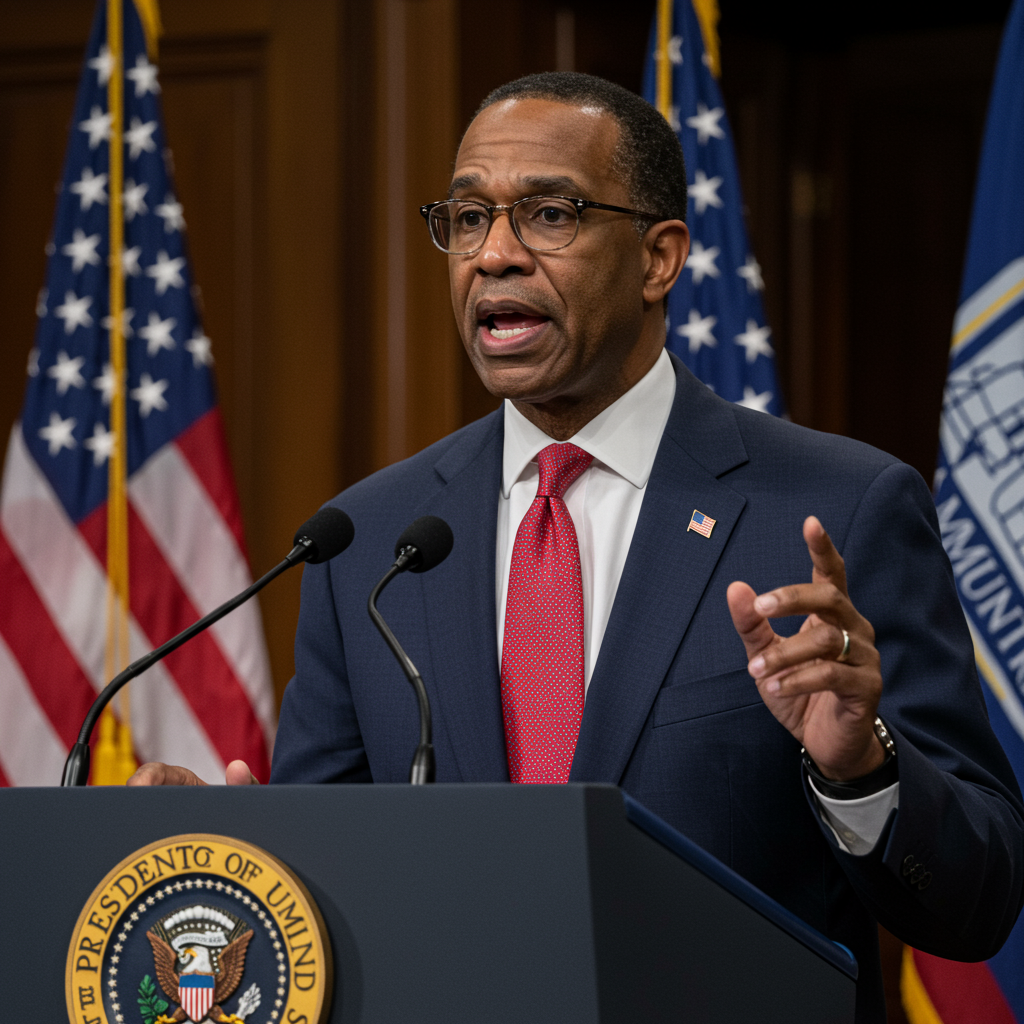Maryland governor Wes moore is forcefully defending his administration’s economic achievements while launching sharp criticism against a federal legislative package championed by former President Donald Trump. Speaking during Fourth of July festivities, Governor Moore framed the state’s recent fiscal health as a direct result of his policies, contrasting them with potential nationwide impacts he claims would harm Marylanders. He specifically targeted the federal bill, labeling it the “Greed Act of 2025,” and warned of significant negative consequences for healthcare access and support programs within the state.
Maryland’s Economic Approach Under Governor Moore
Governor Moore is touting a significant turnaround in Maryland’s financial standing during his tenure. He proudly points to transforming a projected state budget deficit into a surplus. This fiscal maneuver, he argues, demonstrates effective management and a commitment to sound economic principles. A key component of his administration’s strategy, as highlighted by the Governor, involves a recalibration of the state’s tax structure.
The Governor asserts that recent tax reforms have resulted in a tax cut for the overwhelming majority of Marylanders. Specifically, he claims that 94% of residents experienced a tax reduction this year. This tax relief, he emphasizes, was deliberately directed towards the state’s middle-class families. He contends that these households are the most deserving of financial breaks and that the state’s economic policies are fundamentally built to support working families.
Balancing Tax Cuts with Targeted Increases
While promoting widespread tax cuts for the middle class, Governor Moore also addressed questions about accompanying tax and fee increases that took effect around the same time. He clarified that the burden of these increases falls predominantly on high-income earners. The Governor stated that the “overwhelming majority” of any tax increases resulting from the recent reforms affect millionaires.
According to Governor Moore, asking those with substantially more resources to invest a little extra is crucial. This additional revenue, he argues, is earmarked for vital public services. These include funding world-class schools and ensuring public safety by avoiding layoffs of police officers and firefighters. He maintained that despite these targeted increases, the core outcome of the state’s tax reform is a net tax cut for middle-class families.
Critiquing the Federal “Greed Act”
In stark contrast to his optimistic view of Maryland’s economy, Governor Moore expressed deep concern over a federal legislative package. Signed by President Trump around the Fourth of July, Governor Moore derisively dubbed the bill the “Greed Act of 2025.” He described the prospect of this bill becoming law as “depressing” and predicted it would negatively impact families across Maryland and the nation.
Governor Moore detailed several specific adverse effects he believes the federal legislation will unleash upon the state. He warned that the bill is projected to strip healthcare coverage from 200,000 Maryland residents. Furthermore, he claimed it would lead to cuts impacting essential rural hospitals. Access to food assistance programs for vulnerable populations within the state is also reportedly on the chopping block under this federal plan.
Alleged Impact on State and National Finances
Beyond direct cuts to services, Governor Moore also raised alarms about the fiscal implications of the “Greed Act.” He asserted that the legislation would add a staggering figure to the national debt, close to $4 trillion. This significant increase in federal borrowing, he implied, could have broader economic ramifications, potentially constraining future state and federal initiatives.
When questioned whether the anticipated negative impacts of the federal bill on Maryland’s finances or services might require calling a special state legislative session, Governor Moore deflected, reiterating the state’s commitment. He emphasized that Maryland’s focus remains squarely on supporting working families and protecting their interests, suggesting the state government is prepared to navigate the federal landscape based on its existing policy priorities.
Context and Continued Discussion
Governor Moore’s comments were initially made to reporters while participating in a community Fourth of July parade in Columbia, Maryland. He engaged with residents, taking photos and shaking hands, before speaking on economic matters. Following these initial remarks, he continued to voice his concerns about the federal legislation and promote Maryland’s economic performance during a subsequent appearance on CNN.
During the CNN interview, Governor Moore reportedly reiterated his criticism of the federal bill. He also continued to champion the economic policies implemented in Maryland. As evidence of their effectiveness, he cited positive indicators such as lower unemployment rates and consistent job growth within the state. These discussions underscore a clear effort by the Governor to position Maryland’s economic path in direct opposition to the federal direction being set by the Trump administration’s new legislation.
Frequently Asked Questions
What specific impacts does Gov. Moore claim Trump’s bill will have on Maryland?
Governor Wes Moore has stated that the federal legislative package, which he calls the “Greed Act of 2025,” will have several negative effects on Maryland. He claims it will cause 200,000 Marylanders to lose healthcare coverage, result in cuts to rural hospitals, reduce food assistance for state residents, and add nearly $4 trillion to the national debt. These are specific points of criticism he has raised against the federal policy.
How does Gov. Moore say his state’s economic policy benefits middle-class Marylanders?
Governor Moore contends that his administration’s economic policies, including recent tax reforms, have provided significant benefits to the middle class. He states that the reforms have led to a tax cut for 94% of Marylanders, with this relief primarily directed towards middle-class families whom he sees as most deserving. While there were some increases, he argues these disproportionately affect millionaires, allowing the state to fund essential services without burdening most residents.
What is the context of Gov. Moore’s recent economic comments?
Governor Moore made these comments during and after a Fourth of July parade in Columbia, Maryland. He spoke with local reporters about his state’s economic policies and his opposition to a federal bill signed by President Trump. He later discussed these same points on CNN, continuing to contrast Maryland’s economic trajectory, which he characterizes by job growth and lower unemployment, with the potential national impacts of the federal legislation he criticized.
Conclusion
Governor Wes Moore has drawn a clear line in the sand, presenting his administration’s economic policies as a successful model focused on supporting working and middle-class families, evidenced by a budget surplus and targeted tax cuts. Simultaneously, he has launched a strong critique against a federal bill signed by President Trump, framing it as detrimental to Marylanders’ access to essential services like healthcare and food assistance, while also escalating the national debt. His remarks, delivered initially during a community parade and later amplified on national television, highlight a deliberate political strategy to differentiate Maryland’s path from the federal direction, emphasizing state-level successes in job growth and fiscal health despite potential challenges posed by national policy. This contrast sets the stage for ongoing debate about the most effective approaches to economic prosperity and resident well-being.




